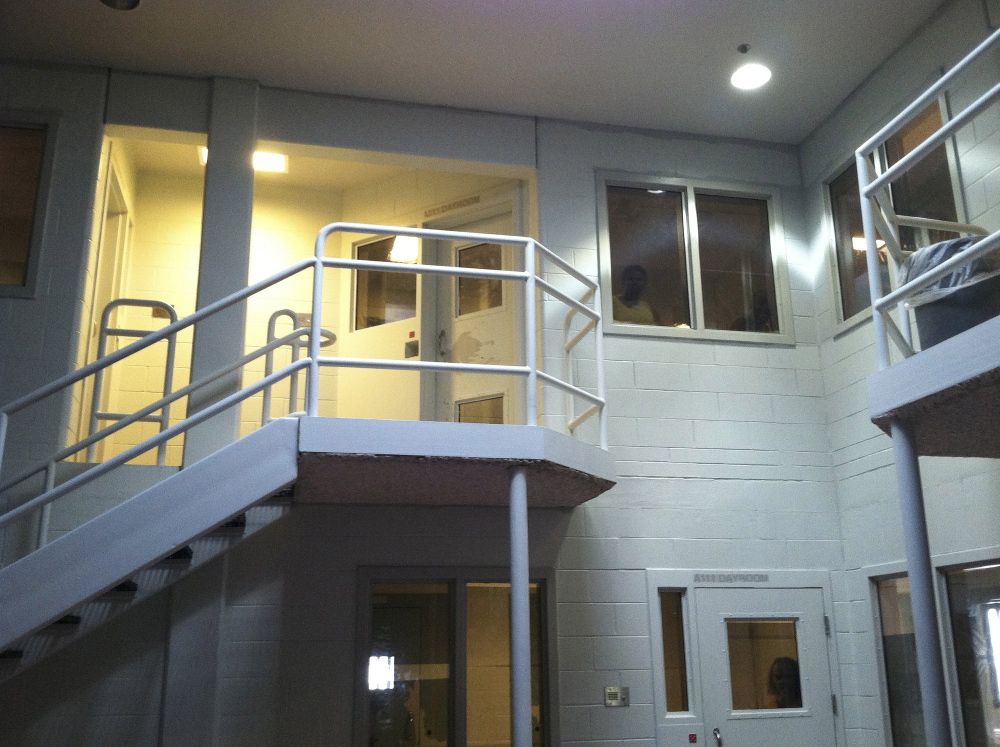In Maine and across the country, defendants are spending time behind bars not because they pose a flight risk, not because they present a threat to public safety, but just because they’re too poor to pay court-ordered fines.
This wastes taxpayers’ money and creates a two-tiered system of punishment. A bill before the Legislature this session that deserves widespread support proposes a long-overdue overhaul of the system.
Judges in Maine have the option of imposing a fine anytime someone is convicted of a criminal offense. If that person can’t pay the entire debt within 30 days, then – under Maine law – they can be sentenced to jail solely on that basis, even if they’ve already served the time set out in their sentence.
They also face late fees (which build up with every missed payment), and they immediately lose their driver’s license (which can’t be restored until they pay a reinstatement fee).
L.D. 951, sponsored by Rep. Mark Dion, D-Portland, would prohibit the practice of incarcerating people for unpaid fines. The proposal also would leave it up to a judge to decide whether to impose fines for drug violations (every such conviction in Maine currently carries a mandatory $400 fine).
The U.S. Supreme Court made it clear several decades ago that putting people behind bars for failure to pay is unconstitutional, ruling in Bearden v. Georgia that it creates a system of justice that punishes poor Americans more harshly than richer people for identical crimes.
Then why has the practice made a comeback? Observers cite a greater reliance on incarceration, even for low-level, nonviolent offenses, and the Great Recession-driven trend of attaching more fines to criminal violations in order to fill state budget gaps.
But the pragmatic arguments don’t hold up, either. As “failure to pay” offenders sit in jail, they can wind up losing their jobs, leaving them unable to support themselves and their families, leading to a downward spiral of debt and crisis and undermining their capacity to pay what they owe.
What’s more, it costs far more to keep these inmates behind bars than the criminal justice system collects from them. In one four-month period, for example, the Cumberland County Jail spent almost $26,000 to incarcerate people for unpaid fines and recouped $10,000 in fines. (No actual money was collected; rather, the inmates “repay” their fines with each day spent in jail.)
Obviously, this system is neither practical nor humane. By eliminating the fine structure that feeds these modern-day debtors’ prisons, Maine has an opportunity to fulfill a foundational principle of American criminal justice and ensure that the wealthy and the poor here are treated the same before the law.
Copy the Story LinkSend questions/comments to the editors.



Success. Please wait for the page to reload. If the page does not reload within 5 seconds, please refresh the page.
Enter your email and password to access comments.
Hi, to comment on stories you must . This profile is in addition to your subscription and website login.
Already have a commenting profile? .
Invalid username/password.
Please check your email to confirm and complete your registration.
Only subscribers are eligible to post comments. Please subscribe or login first for digital access. Here’s why.
Use the form below to reset your password. When you've submitted your account email, we will send an email with a reset code.